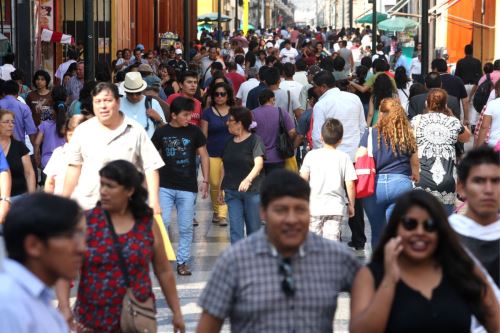Key Demographics
Women constitute 52.3% of Lima's population (5,455,025), while men account for 47.7% (4,977,108).
By age group, the population aged 15 to 39 years represents 36.5%, those aged 40 to 59 years make up 27.1%, and individuals aged 0 to 14 years account for 18.7%. Older adults aged 60 and over represent 17.6% of the national population.
San Juan de Lurigancho: The Most Populous District
San Juan de Lurigancho remains the most populous district, with 1,282,635 residents, accounting for 12.3% of Lima's population.
Other densely-populated districts include: San Martin de Porres (802,774), Ate (743,517), Comas (600,307), Villa María del Triunfo (462,141), Carabayllo (458,341), Villa El Salvador (442,292), Santiago de Surco (437,028), Puente Piedra (435,888), and San Juan de Miraflores (433,709).
Altogether, these districts house 58.5% of Lima's residents.
Conversely, districts like Santa Maria del Mar, Punta Negra, San Bartolo, Pucusana, Punta Hermosa, Barranco, Cieneguilla, Chaclacayo, Santa Rosa, and San Luis altogether account for just 2.8% of the Metropolitan Area's population.
2204 Birth Statistics
According to the Ministry of Health, 99,203 births were registered in Lima in 2024.
The district of Lima recorded the highest number (23,250), followed by Villa El Salvador (6,618), Ate (5,807), Jesus Maria (5,446), Miraflores (5,426), and Comas (4,841).
March saw the most births (9,004), followed by April (8,700), May (8,696), January (8,567), and July (8,501).
Employment Data
Lima Metropolitan Area's employed population reached 4,909,900 in 2024, as per the National Permanent Employment Survey (EPEN). The breakdown shows that 53.9% are men and 46.1% are women.
By age group, 12.8% are between 14 and 24 years old, 49.0% are between 25 and 44, and 38.2% are 45 or older.
By sector, 55.7% of the employed population works in services, 22.3% in commerce, 13.5% in manufacturing, 7.3% in construction, and 1.2% in other activities.
Educational Attainment
Nearly half (47.9%) of Lima residents aged 15 and older have completed secondary education, 23.3% hold a university degree, 17.5% have non-university higher education, and 11.3% completed only primary education or less.
Technology and Internet Access
Data from the
National Household Survey (ENAHO) revealed that
77.6% of households have internet access, 97.5% include at least one member with a cellphone, 47.9% own a computer, and 44.5% have access to cable TV.
Basic Services Coverage
According to the
National Survey of Budget Programs (ENAPRES) for 2023,
94.3% of households in Lima have access to public water supply, 91.7% have sewage or other sanitation systems, and 97.9% are connected to public electricity grids.
